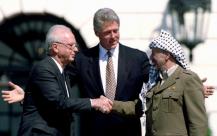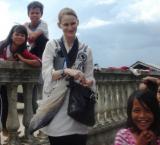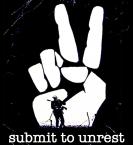 |
Holder v. Humanitarian Law Project: ICAR Joins the Carter Center in Opposing Use of the Homeland Security Act to Criminalize Conflict Resolution ActivitiesIn June of this year, the Obama administration teamed up with the conservative majority of the U.S. Supreme Court to deliver a serious blow to efforts by organizations like ICAR to train groups denominated “terrorist” to use the methods of peaceful advocacy and conflict resolution rather than resorting to violence. The case, called Holder v. Humanitarian Law Project, grew out of activities by several organizations to assist members of the Kurdish PKK and the Sri Lankan LTTE to learn and use the methods of dispute resolution, international law, and public advocacy. Both groups are listed as terrorist organizations by the Secretary of State, along with Hezbollah, Hamas, al Shabaab, and several dozen others. The issue was whether a... |
 |
Eighth ICAR-OAS Summer Workshop: Building a Community of Practice in Latin America
This past Spring, ICAR held the resoundingly successful eighth ICAR-OAS Summer Course; bringing top level scholar-practitioners, NGO leaders, and government officials from Latin America to ICAR. The workshop focused on the application of reflective practice to social conflict resolution, and sought to assist in strengthening higher-education programs in conflict management. The two-week program was designed and organized by Professors Wallace Warfield and Christopher Mitchell, students, alumni, and friends of ICAR, a small community that has collectively been working to strengthen conflict resolution/transformation in Latin America and the Caribbean for the past ten years. The project was run on a miniscule budget (less than $3,000), and financial assistance from the OAS’s Professional Development Scholarship Program that provided airline tickets.... |
 |
Field Research in Acheh, Indonesia “Don’t Disturb the Peace”This past August, thanks to a collaborative research grant from the Center for Consciousness and Transformation at George Mason University, I found myself sitting in a bamboo shelter on the edge of a small Acehnese village. During armed conflict between the Indonesian military and the Free Aceh Movement, this village became a place of violence and trauma, with men and boys “disappeared” and women and girls subject to military interrogation and sexual abuse. Women told me of watching their daughters raped, nursing the wounds of their sons, and struggling to make a living when access to fields and markets was blocked by combat. Peace came to their village in 2005, after the Indian Ocean tsunami disaster made it impossible for the government to... |
 |
Director’s Breakfast-Book Launch: ICAR Host’s Dr. Adekeye Adebajo
On October 29, 2010, ICAR hosted Dr. Abekeye Adebajo, Executive Director of the Centre for Conflict Resolution, South Africa. The event, coordinated through the Office of the Director, gave Dr. Adebajo an opportunity to present his recently published book "The Curse of Berlin: Africa After the Cold War" and created an informal and collegial atmosphere for staff and students to interact with one of Africa's leading conflict resolution scholar-practitioners. ICAR Director Andrea Bartoli hopes that this event will be just the first step towards a stronger engagement with Africa's conflict resolution community. Dr. Adebajo's academic career began in East Germany, where he witnessed the fall of the Berlin Wall. Following this, he took up residence as a... |
 |
Reflections from Fall for the Book: Emir El-Kader and the Universality of Humanitarian NormsThis Fall, George Mason University hosted a series of literary seminars entitled “Fall for the Book.” On September 21st John Kiser presented his bibliography of Emir Abd El-Kader, described by Mr. Kiser as a combination of “a Benedictine monk and a Marine, with a good liberal arts education.” Mr. Kiser went on to explain that his motivations for writing the book came from a desire for “more stories about good Muslims,” to counter the popular image of irrationally violent Muslims. He hoped to achieve this by reviving the memory of one of the greatest men of the nineteenth century, at the time known across Europe and North America as well as the Middle East. Although not explicitly discussed in the book itself, the seminar brought about interesting questions regarding Islam and humanitarian norms. In his book Mr. Kiser not only brings us a... |
 |
Unrest Magazine: A Return to Critical TheoryUnrest Magazine is the product of certain historical conditions and institutional constraints. The project began in October of 2009 as a reaction to what was perceived as a lack of attention to critical theory in the field of peace and conflict studies. We felt a proper critique of capitalist society was necessary to understand contemporary conflict and the field needed a venue for this discussion to take place. While Unrest is unique in its birth at ICAR, the magazine is part of a rich tradition of philosophical questioning and praxis aimed at liberation. The magazine envisions itself as a vehicle for reestablishing the radical foundations of the conflict resolution project through the use of critical conflict analysis and critical... |
 |
Gretchen Reynolds, ICAR Liason Librarian As ICAR's Liaison Librarian from the Arlington Campus Library, Gretchen Reynolds contributes not only to our own work but also to the growth of the conflict analysis and resolution field. Welcoming and proficient, Gretchen is active in supporting and promoting student and faculty research at both the individual and group levels. With a Master of Science of Information from the University of Michigan, Gretchen is a subject specialist, navigating information and library systems to locate the various, and often remote, data ICAR scholars are continuously in search of. Research questions in hand, students and faculty are now noting and appreciating the benefits of Gretchen's skills. ... |



